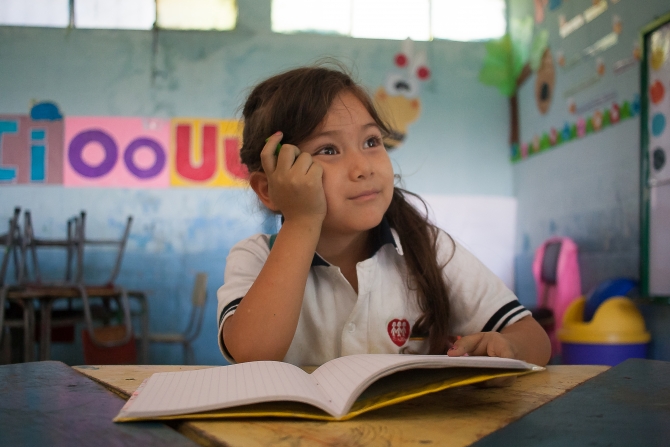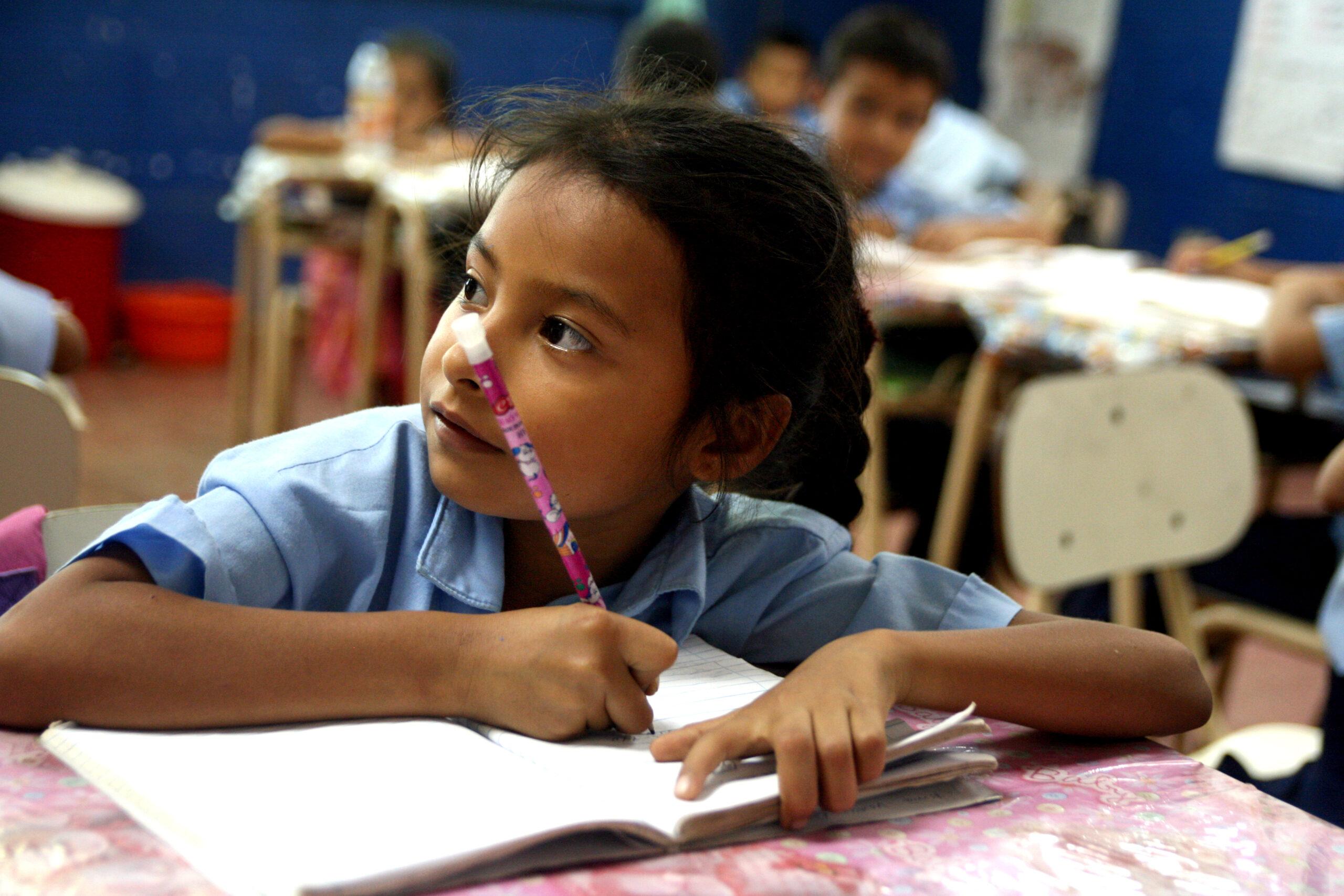Education in Emergency: Where Do We Go From Here?

In early 2020, as education systems around the world began to close as a result of the growing COVID-19 pandemic, it quickly became apparent that our individual and collective responses, as with all emergencies, would occur in two phases: response and recovery.
While globally we find ourselves somewhere in the middle of those two phases, the ongoing impacts of the COVID-19 pandemic are clear: nearly 1.6 billion learners in 190 countries, or a staggering 94 percent of the global student population, had their education interrupted as a result of COVID-19. In March 2021, UNICEF estimated that 168 million of those students had their schooling disrupted for close to an entire year. Latin America and the Caribbean, where our partners Fe y Alegría operate in 17 countries, was particularly affected with 98 million students, 58% of all school-aged children in the region, impacted.
Now, more than ever, guaranteed access to quality and inclusive public education is vital for societal recovery and achieving a world where all people have their rights upheld, their dignity protected, and the capacity to act as protagonists in their individual and communal development.
How we take action, though, in the response phase of this pandemic is secondary to the actions we take in the recovery phase. Simply put: what happens next? How do we move on from here? How do we ensure we stay on track to achieving Sustainable Development Goal No. 4 by 2030?
By redoubling their previous commitments to education, through investment and programmatic modifications, governments will position themselves to come out of the COVID-19 pandemic having successfully addressed the needs of the most vulnerable groups, strengthened their domestic educational systems, and ensured the global community achieves its stated educational goals.

Specifically, Magis Americas calls on governments to:
- Recognize that education is a funding and programmatic priority;
- Support funding efforts for innovative approaches to remote learning opportunities, both for primary education and vocational training;
- Guarantee that distance learning methods and programs target the needs of the most vulnerable students: women and girls, people with disabilities, refugees, migrants & displaced persons, students living in rural areas, and students living in extreme poverty;
- Ensure that education programs use a holistic approach that meets the needs of children and families through the integration of social services, including mental and physical health, nutrition, and socioeconomic support programs;
- Support for teachers’ needs and development to guarantee the success of students and the educational systems;
- Invest in infrastructure to support a safe return to in-person learning;
- Continue to implement monitoring and evaluating efforts to understand the effects of COVID-19 on education and its broader impacts, as well ensuring that educational interventions are producing the desired results, adjusting to meet students’ changing needs.
It cannot be overstated that education is a communal act. Not one of us was educated in a silo or by a single individual. Likewise, we all benefit from an educated society. Thus, while we continue to call on governments to assume their responsibilities in ensuring the achievement of SDG4, let us remember that access to quality and inclusive public education is a responsibility shared by all.
Nate Radomski has been executive director at Magis Americas since 2018. Magis Americas (MA) is a Washington, D.C.-based Jesuit development NGO committed to global development. Informed by the Universal Apostolic Preferences and the Sustainable Development Goals, MA’s work is focused on education, migration, and ecology. These three areas represent a holistic approach to building just, dignified, and equitable societies.

